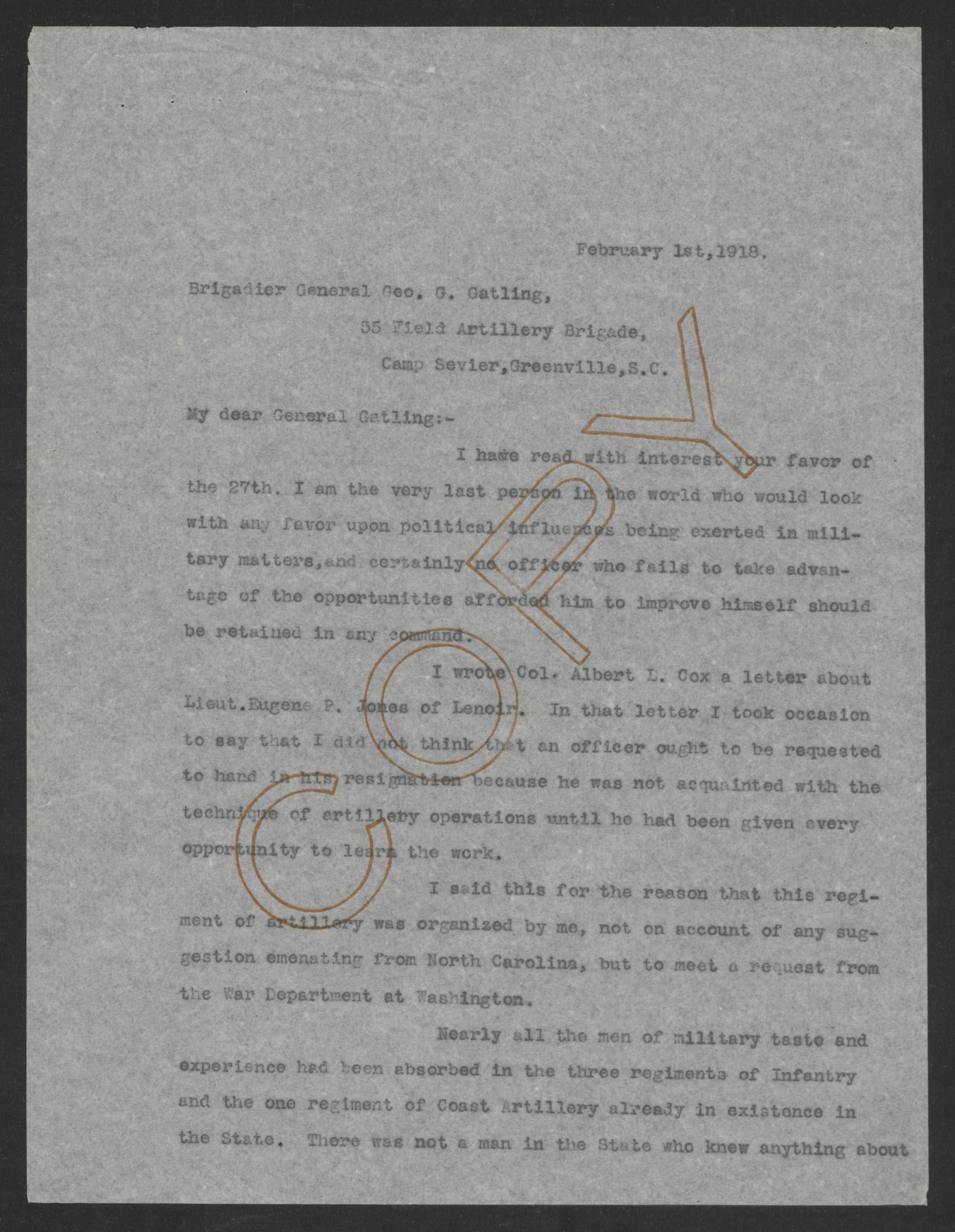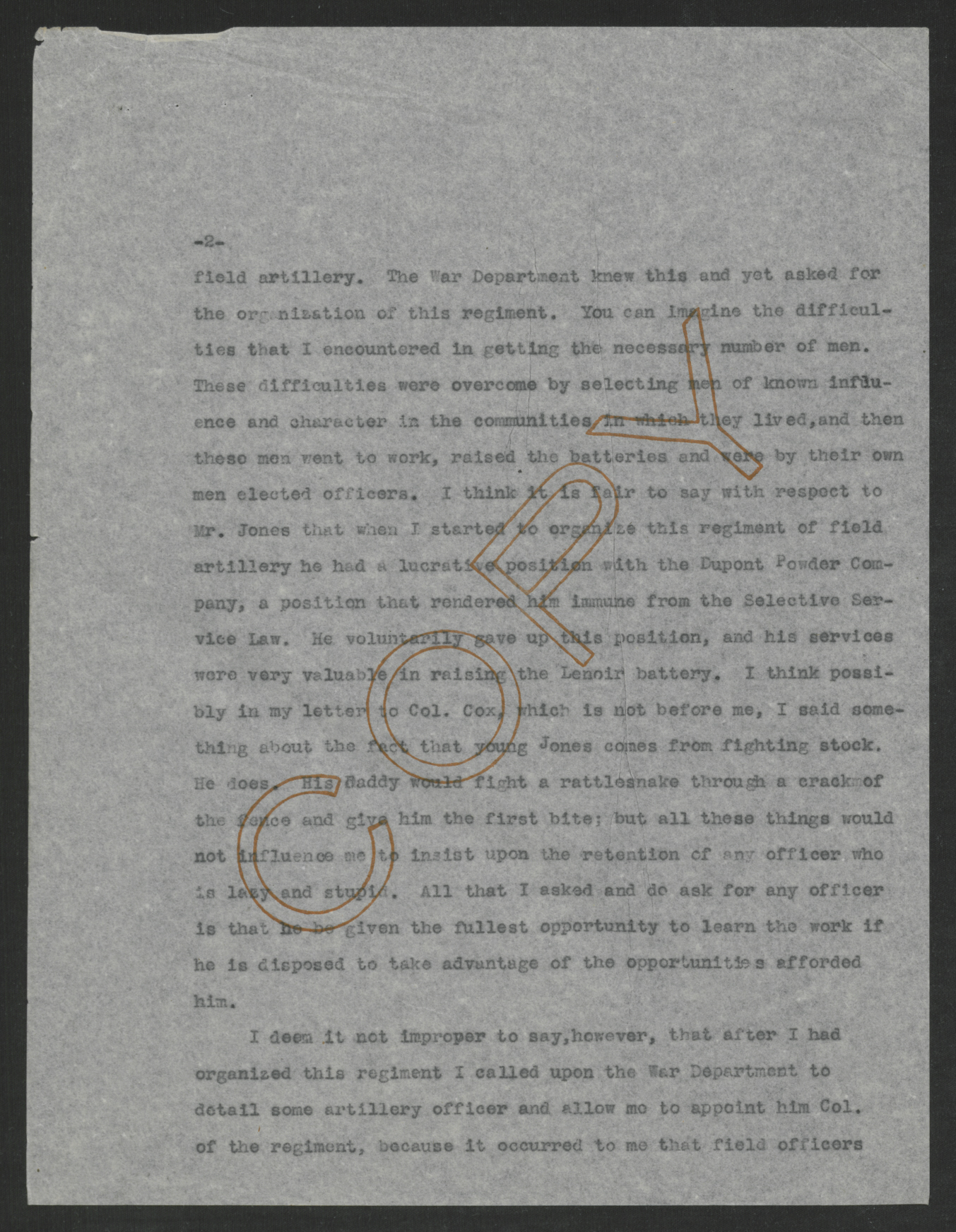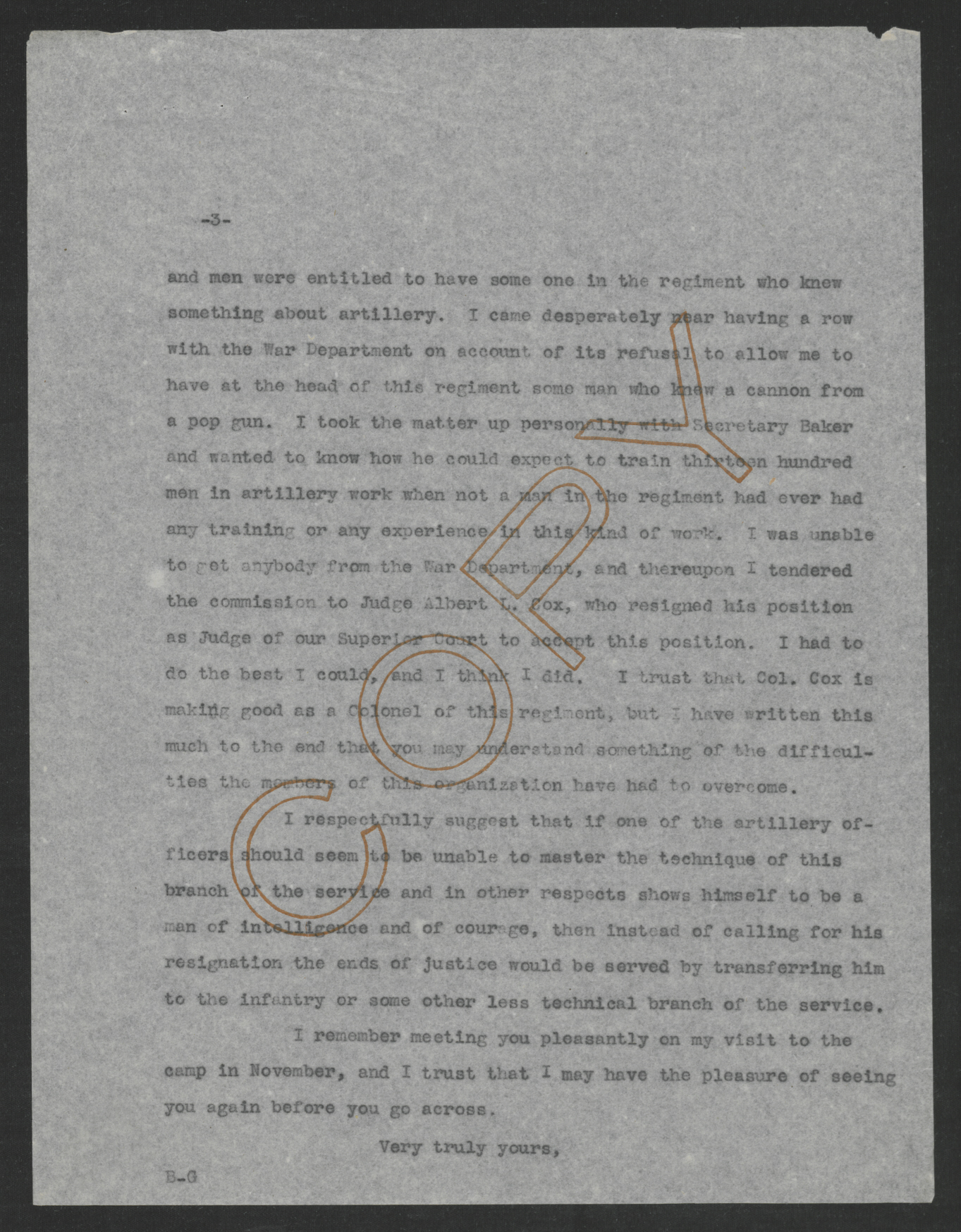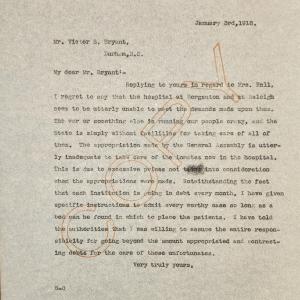February 1st, 1918.
Brigadier General Geo. G. Gatling,
55 Field Artillery Brigade,
Camp Sevier, Greenville, S.C.
My dear General Gatling:-
I have read with interest your favor of the 27th. I am the very last person in the world who would look with any favor upon political influences being exerted in military matters, and certainly no officer who fails to take advantage of the opportunities afforded him to improve himself should be retained in any command.
I wrote Col. Albert L. Cox a letter about Lieut. Eugene P. Jones of Lenoir. In that letter I took occasion to say that I did not think that an officer ought to be requested to hand in his resignation because he was not acquainted with the technique of artillery operations until he had been given every opportunity to learn the work.
I said this for the reason that this regiment of artillery was organized by me, not on account of any suggestion emenating from North Carolina, but to meet a request from the War Department at Washington.
Nearly all the men of military taste and experience had been absorbed in the three regiments of Infantry and the one regiment of Coast Artillery already in existence in the State. There was not a man in the State who knew anything about field artillery. The War Department knew this and yet asked for the organization of this regiment. You can imagine the difficulties that I encountered in getting the necessary number of men. These difficulties were overcome by selecting men of known influence and character in the communities in which they lived, and then these men went to work, raised the batteries and were by their own men elected officers. I think it is fair to say with respect to Mr. Jones that when I started to organize this regiment of field artillery he had a lucrative position with the Dupont Powder Company, a position that rendered him immune from the Selective Service Law. He voluntarily gave up this position, and his services were very valuable in raising the Lenoir battery. I think possibly in my letter to Col. Cox, which is not before me, I said something about the fact that young Jones comes from fighting stock. He does. His daddy would fight a rattlesnake through a crack of the fence and give him the first bite; but all these things would not influence me to insist upon the retention of any officer who is lazy and stupid. All that I asked and do ask for any officer is that he be given the fullest opportunity to learn the work if he is disposed to take advantage of the opportunities afforded to him.
I deem it not improper to say, however, that after I had organized this regiment I called upon the War Department to detail some artillery officer and allow me to appoint him Col. of the regiment, because it occurred to me that field officers and men were entitled to have some one in the regiment who knew something about artillery. I came desperately near having a row with the War Department on account of its refusal to allow me to have at the head of this regiment some man who knew a cannon from a pop gun. I took the matter up personally with Secretary Baker and wanted to know how he could expect to train thirteen hundred men in artillery work when not a man in the regiment had ever had any training or any experience in this kind of work. I was unable to get anybody from the War Department, and thereupon I tendered the commission to Judge Albert L. Cox, who resigned his position as Judge of our Superior Court to accept this position. I had to do the best I could, and I think I did. I trust the Col. Cox is making good as a Colonel of this regiment, but I have written this much to the end that you may understand something of the difficulties the members of this organization have had to overcome.
I respectfully suggest that if one of the artillery officers should seem to be unable to master the technique of this branch of the service and in other respects show himself to be a man of intelligence and of courage, then instead of calling for his resignation the ends of justice would be served by transferring him to the infantry or some other less technical branch of the service.
I remember meeting you pleasantly on my visit to the camp in November, and I trust that I may have the pleasure of seeing you again before you go across.
Very truly yours,
[unsigned]
B_G
Date:
Sender:
Recipient:
Related People:
Repository:
Collection:
Places:
»» »» South Carolina
»» »» Washington, D.C.







